The Crucial Role of Hydration in Immune Function for Athletes and Fitness Enthusiasts
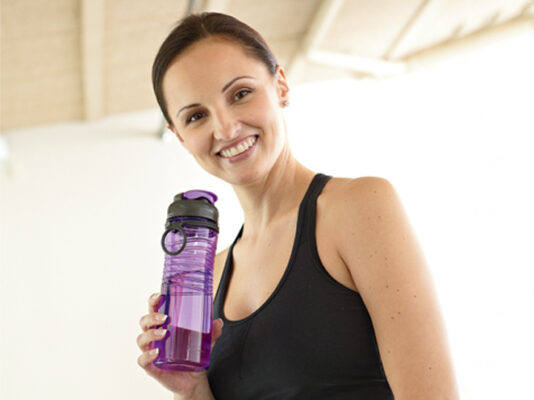
Image by Rubbermaid Products via flickr
Hydration and Immune Functions
The immune system protects the body from potentially dangerous germs, infections, and diseases. A healthy immune system is crucial for overall health and well-being, especially for athletes and people who punish their bodies with rigorous physical activity. Research has shown that fluid intake is necessary for supporting immune function, so people who push their bodies to the limit need to focus on hydration.
Significance for Athletes and Fitness Enthusiasts
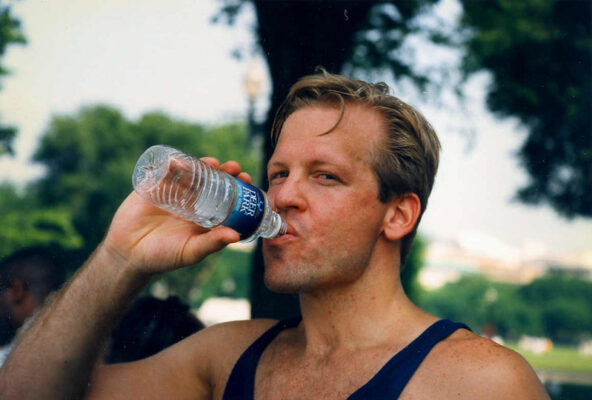
Image by Elvert Barnes via flickr
People who work out regularly are more likely to get dehydrated. Because they work out a lot, they sweat more and have higher metabolic needs. Dehydration can lead to decreased immune function, increase the risk of illness and injury, slow recovery from exertion, and affect athletic performance. The body cannot properly function if it does not have enough water.
Understanding Hydration
Water’s Role in Body Health
Water is essential to the human body and makes up approximately 60% of our body weight. It affects various bodily functions, such as regulating body temperature. It keeps blood from becoming too thick, transports nutrients, and lubricates joints. Water is also crucial for waste and toxin removal.
Signs of Dehydration
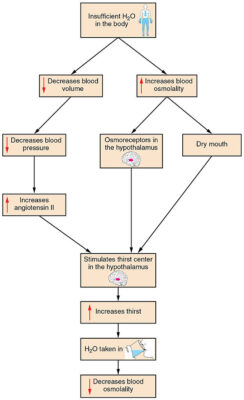
Dehydration signs can vary from mild to extreme. Some warning signs include thirst, a dry mouth, dark, amber-colored urine, fatigue, dizziness, confusion, and even fainting. Dehydration can lead to exhaustion, muscle cramps, heatstroke, and other serious health complications. Severe dehydration can cause kidney damage, brain damage, and possibly death.
Hydration Requirements for Athletes and Fitness Enthusiasts
The amount of water an athlete should drink to maintain proper hydration can vary depending on several factors. Some factors are body weight, activity level, environmental conditions, workout duration, and individual sweat loss. Athletes should prepare for fluid loss before exercising by drinking a little water.
| Body Weight (lbs) | Activity Level | Environmental Conditions | Recommended Daily Water Intake (liters) |
|---|---|---|---|
| < 110 | Light | Mild | 2.0 – 2.5 |
| < 110 | Light | Hot/High Altitude | 2.5 – 3.0 |
| < 110 | Moderate | Mild | 2.5 – 3.0 |
| < 110 | Moderate | Hot/High Altitude | 3.0 – 3.5 |
| < 110 | Intense | Mild | 3.0 – 3.5 |
| < 110 | Intense | Hot/High Altitude | 3.5 – 4.0 |
| 110 – 150 | Light | Mild | 2.5 – 3.0 |
| 110 – 150 | Light | Hot/High Altitude | 3.0 – 3.5 |
| 110 – 150 | Moderate | Mild | 3.0 – 3.5 |
| 110 – 150 | Moderate | Hot/High Altitude | 3.5 – 4.0 |
| 110 – 150 | Intense | Mild | 3.5 – 4.0 |
| 110 – 150 | Intense | Hot/High Altitude | 4.0 – 4.5 |
| 150 – 200 | Light | Mild | 3.0 – 3.5 |
| 150 – 200 | Light | Hot/High Altitude | 3.5 – 4.0 |
| 150 – 200 | Moderate | Mild | 3.5 – 4.0 |
| 150 – 200 | Moderate | Hot/High Altitude | 4.0 – 4.5 |
| 150 – 200 | Intense | Mild | 4.0 – 4.5 |
| 150 – 200 | Intense | Hot/High Altitude | 4.5 – 5.0 |
| > 200 | Light | Mild | 3.5 – 4.0 |
| > 200 | Light | Hot/High Altitude | 4.0 – 4.5 |
| > 200 | Moderate | Mild | 4.0 – 4.5 |
| > 200 | Moderate | Hot/High Altitude | 4.5 – 5.0 |
| > 200 | Intense | Mild | 4.5 – 5.0 |
| > 200 | Intense | Hot/High Altitude | 5.0 – 5.5 |
Please note that these recommendations are general guidelines and individual needs may vary. It’s essential to listen to your body and consult with a healthcare professional or sports nutritionist for personalized advice
Hydration and the Immune System: A Closer Look
How Does Dehydration Affect the Immune System?
Dehydration can hurt the immune system by reducing the number of the body’s defensive cells and slowing them down. With dehydration, harmful poisons and waste are not easy to remove. When the body cannot clear these toxins, it can become more susceptible to infection or illness. Losing energy from not drinking enough water can also lead to a reduction in physical activity, which weakens the immune system.
Exercise can also affect immune function by temporarily reducing immune cell activity. Athletes and fitness enthusiasts should drink enough water to keep their immune systems strong and fight off infections and illnesses.
The Role of Electrolytes in Immune Function
Electrolytes, like sodium, potassium, and magnesium, are key minerals that help the immune system work. We lose electrolytes when we sweat, so we should replace them to stay hydrated and support our immune system.
Optimal Hydration Strategies for Athletes
Pre-exercise Hydration
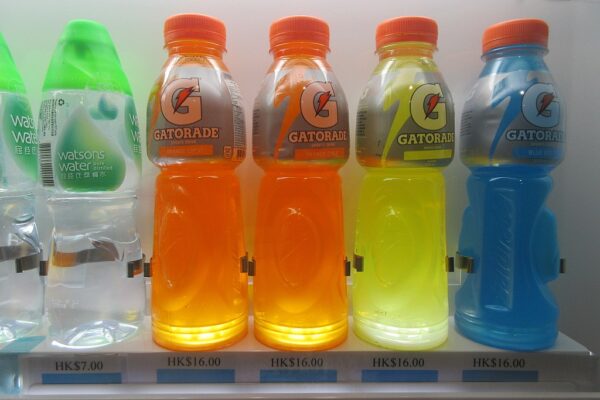
Drinking enough water before exercising is essential to ensure the body is hydrated before the workout. Drinking 17–20 ounces of water 2-3 hours before exercising can help maintain proper hydration levels.
Hydration During Exercise
During exercise, it is critical to drink plenty of fluids. Athletes and fitness enthusiasts need to replenish lost fluids regularly. Experts say that when you work out hard, you should drink 7–10 ounces of fluid every 10–20 minutes. This action is especially critical in hot and humid conditions.
Electrolyte Balance
Athletes and fitness enthusiasts need to replenish lost electrolytes during exercise. During long workouts, sports drinks or electrolyte supplements can help you stay hydrated and keep the right balance of electrolytes in your body. If you consume sports drinks, you’re advised to monitor your caffeine and sugar intake.
Post-exercise Rehydration
Replenishing Lost Fluids
Athletes and fitness enthusiasts who work out regularly need to drink enough fluids to replace what they lose while exercising. For best results, try to drink at least 8 ounces of water within 30 minutes of ending the workout. Creating a hydration plan, monitoring hydration status, and adapting a hydration strategy to your fluid loss are all essential for maintaining proper hydration.
Hydration During Exercise
There are different ways to stay hydrated for endurance athletes, strength and power athletes, team sports players, and people who attend fitness classes. Special considerations should be made, like how the environment affects the amount of water you need, how much you sweat, and how many electrolytes you lose.
Restoring Electrolyte Balance
Electrolytes are essential minerals our bodies need to keep nerves and muscles working. They also help keep our blood pressure steady. Electrolytes are lost when we sweat. Getting them back is crucial for staying hydrated and healthy.
Electrolytes include sodium, potassium, calcium, magnesium, chloride, and phosphate. Drinking plain water alone may not replenish electrolytes after intense exercise or prolonged sweating. While sports drinks contain electrolytes, they also have added sugar, and some also contain caffeine. These drinks may not be healthy for everyone, especially those trying to lose weight or with diabetes.
Choosing the Right Hydration Source
Water is the best and most natural source of hydration for most people. It is calorie-free, readily available, and essential for overall health and well-being. Adding electrolyte supplements to water with tablets, powders, or drops can enhance its electrolyte content.
Sports drinks can benefit athletes or people engaged in prolonged, high-intensity exercise, as they contain electrolytes and carbohydrates to fuel and hydrate the body. Coconut water is a natural source of electrolytes and may be a suitable alternative to sports drinks for some people.
Hyponatremia is a potentially life-threatening condition that may happen if you drink too much water without getting enough electrolytes. When rehydrating after a workout, use electrolyte replacements, especially after intense exercise or in hot, humid places.
The Benefits of Proper Hydration for Immune Function
Staying hydrated is critical for maintaining a healthy immune system and reducing infection and illness risks. Water is a crucial component of the lymphatic system, which helps fight infections and diseases. Getting enough water can help the body’s natural detoxification processes work better and rid the body of harmful toxins and waste products. Hydration can also improve white blood cell function, which fights infections.
Hydration Tips for Different Types of Athletes
Different athletes require different hydration strategies. Endurance athletes, like runners or cyclists, should drink enough water to replace fluids lost through sweat. Strength and power athletes, such as weightlifters, also need to stay hydrated, but they may not need as much water as endurance athletes. Take precautions to ensure you’re not consuming excessive caffeine. Caffeine may make you urinate more frequently, causing dehydration.
Image by CoatedSilver.com
Special Considerations for Hydration
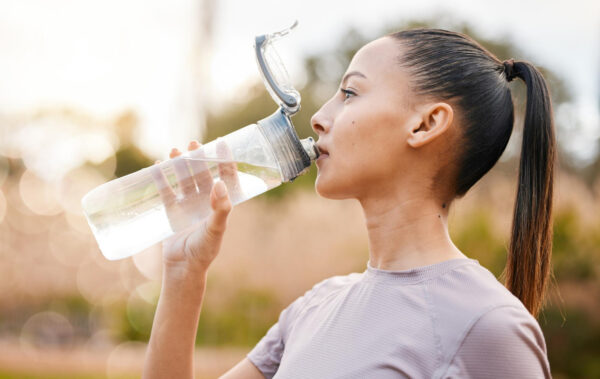
Environmental Factors Affecting Hydration
Environmental factors can affect hydration needs. Heat and humidity increase the body’s need for fluids, while activity at high altitudes can lead to dehydration due to increased respiration and fluid loss through urination. Maintaining proper hydration levels can help you avoid common hydration issues like cramps and hyponatremia.
Environmental Factors Affecting Hydration Needs:
- Heat and humidity: In hot and humid conditions, the body loses more fluids through sweating, which can lead to dehydration. You should drink more fluids in these conditions, even if you do not feel thirsty.
- Altitude: At higher altitudes, the air is drier and thinner, which causes deep breathing and increased moisture loss through respiration. As a result, increase your hydration in high-altitude environments.
- Individual differences in sweat rate and electrolyte loss: Different people have different sweat rates, which can affect their hydration needs. Some individuals may lose more electrolytes through sweating, which impacts their hydration requirements.
Dealing with Common Hydration Challenges:
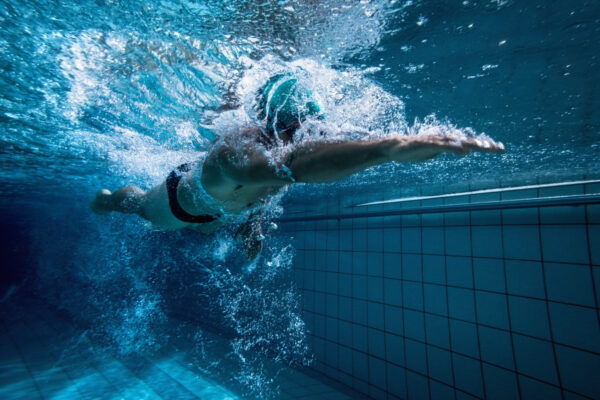
Dehydration or an imbalance of electrolytes, such as sodium, potassium, and magnesium, can cause muscle cramps. Adequate hydration and a balanced diet can help prevent unwanted muscle cramps.
What is Hyponatremia?
Hyponatremia is a condition that results from low sodium levels in the blood, which can happen when a person drinks too much water and dilutes their electrolyte and sodium levels. This condition can be dangerous, and symptoms include nausea, headaches, confusion, seizures, and a coma.
Maintaining Proper Hydration in Everyday Life
Creating a Hydration Plan
To maintain your body’s health, create a hydration plan. This plan should include drinking plenty of fluids throughout the day, especially during and after exercise, and eating foods with high water content, such as fruits and vegetables.
Monitoring your hydration status can be done by checking the color of your urine, which should be pale yellow. Assessing your thirst level is also important. If you feel thirsty, you may already be dehydrated, so it is advisable to drink fluids before feeling thirsty.
Your plan for staying hydrated should fit your lifestyle and factor in things like how active you are, how much you move at work, and your fluid preferences.
Hydration Plan Template for Athletes and Fitness Enthusiasts
Name: __________________________ Date: __________________________
Daily Fluid Intake Goals:
- Wake-up (pre-hydration): _____ ounces / _____ mL
- Morning: _____ ounces / _____ mL
- Pre-workout: _____ ounces / _____ mL
- During workout: _____ ounces / _____ mL
- Post-workout: _____ ounces / _____ mL
- Afternoon: _____ ounces / _____ mL
- Evening: _____ ounces / _____ mL
- Bedtime: _____ ounces / _____ mL
Total Daily Fluid Intake Goal: _____ ounces / _____ mL
Workout Schedule:
Monday:
- Time: __________
- Type of Workout: ______________________
- Duration: __________
Tuesday:
- Time: __________
- Type of Workout: ______________________
- Duration: __________
Wednesday:
- Time: __________
- Type of Workout: ______________________
- Duration: __________
Thursday:
- Time: __________
- Type of Workout: ______________________
- Duration: __________
Friday:
- Time: __________
- Type of Workout: ______________________
- Duration: __________
Saturday:
- Time: __________
- Type of Workout: ______________________
- Duration: __________
Sunday:
- Time: __________
- Type of Workout: ______________________
- Duration: __________
Preferred Hydration Sources:
- Water: ______________
- Electrolyte Drink: ______________
- Coconut Water: ______________
- Sports Drink: ______________
- Fruit Juice: ______________
- Herbal Tea: ______________
- Other: ______________
Notes & Adjustments:
- ______________________________
- ______________________________
- ______________________________
- ______________________________
- ______________________________
Remember to consult with your healthcare provider, nutritionist, or coach before making any significant changes to your hydration plan. Always listen to your body and make adjustments as needed.
Conclusion:
To stay properly hydrated, you need to have a plan, keep track of your hydration status, and adjust your hydration plan to fit your lifestyle. It is critical to drink enough water throughout the day, not just during exercise, and listen to your body’s thirst cues.
Staying hydrated is crucial for maintaining a healthy immune system and achieving optimal athletic performance. By choosing the right hydration source, developing a hydration plan, and monitoring hydration status, it is possible to maintain proper hydration levels in everyday life. By following these guidelines, you can ensure that you are getting the hydration you need to stay healthy, energized, and performing at your highest level.
Hydration FAQs:
1. How much water should I drink daily to support immune function?
A) Consume at least 64 ounces of water daily if you want to keep your immune system functioning properly and maintain your health.
2. Are sports drinks necessary for optimal hydration?
A) No, especially if they contain sugar or caffeine. What is important is to replace all lost fluids and electrolytes.
3. Can caffeine negatively affect my hydration status?
A) Yes. Caffeine may make you urinate more frequently, causing dehydration.
4. What are the best strategies for staying hydrated during endurance events?
A) Drinking 17–20 ounces of water 2-3 hours before exercising can help maintain proper hydration levels. When you work out hard, you should drink 7–10 ounces of fluid every 10–20 minutes. And drink at least 8 ounces of water within 30 minutes of ending the workout.
5. How can I monitor my hydration levels effectively?
A) Monitoring your hydration status can be done by checking the color of your urine, which should be pale yellow. Assessing your thirst level is also important. If you feel thirsty, you may already be dehydrated, so it is advisable to drink fluids before feeling thirsty. Creating a hydration plan, monitoring hydration status, and adapting a hydration strategy to your fluid loss are all essential for maintaining proper hydration.
Sources/Citations:
National Institutes of Health, Fluid Replacement for Athletes: https://www.nata.org/sites/default/files/FluidReplacementsForAthletes.pdf
Mayo Clinic Health System, Water: Essential for your body. https://www.mayoclinichealthsystem.org/hometown-health/speaking-of-health/water-essential-to-your-body
National Institutes of Health, The IOC consensus statement: beyond the Female Athlete Triad–Relative Energy Deficiency in Sport: https://pubmed.ncbi.nlm.nih.gov/24620037/
Cedars-Sinai, dehydration, https://www.cedars-sinai.org/health-library/diseases-and-conditions/d/dehydration.html
Gatorade Sports Science Institute, DEHYDRATION AND EXERCISE-INDUCED MUSCLE DAMAGE: IMPLICATIONS FOR RECOVERY: https://www.gssiweb.org/en/sports-science-exchange/Article/dehydration-and-exercise-induced-muscle-damage-implications-for-recovery
Mt. San Antonio College, Hydration Tips: https://www.mtsac.edu/kinesiology/sportsnutrition/hydration.html#:~:text=The%20American%20Council%20on%20Exercise,exercise%20or%20during%20warm%2Dup
Family Doctor.org, Hydration for Athletes: https://familydoctor.org/athletes-the-importance-of-good-hydration/